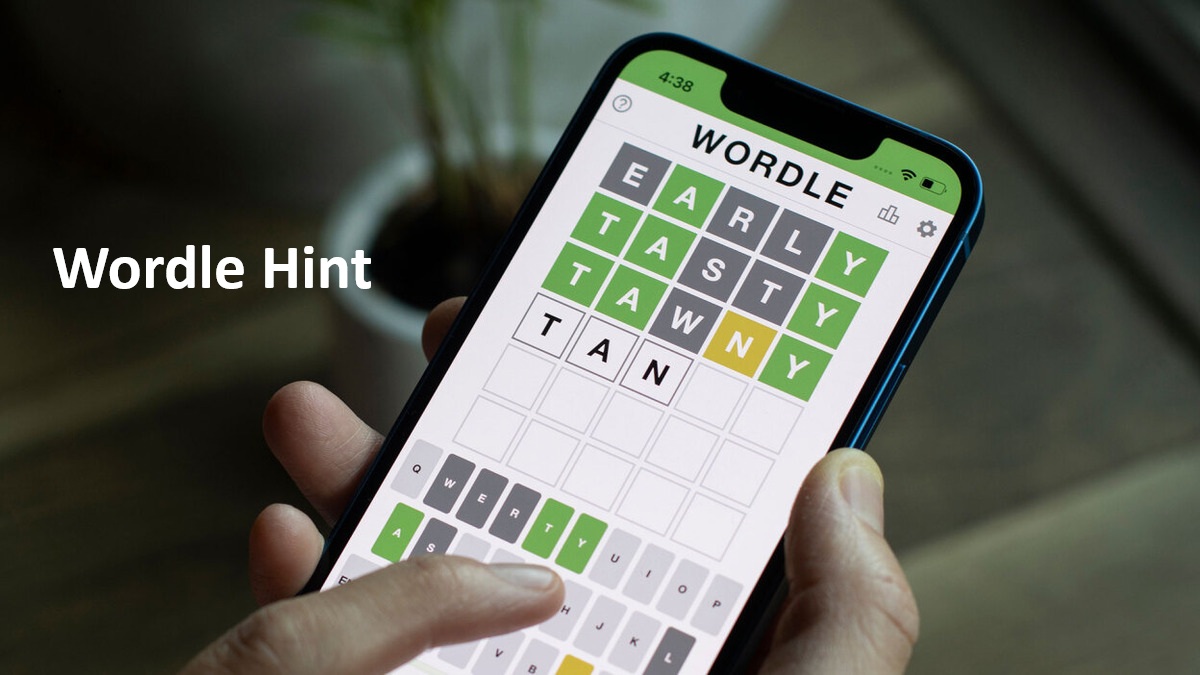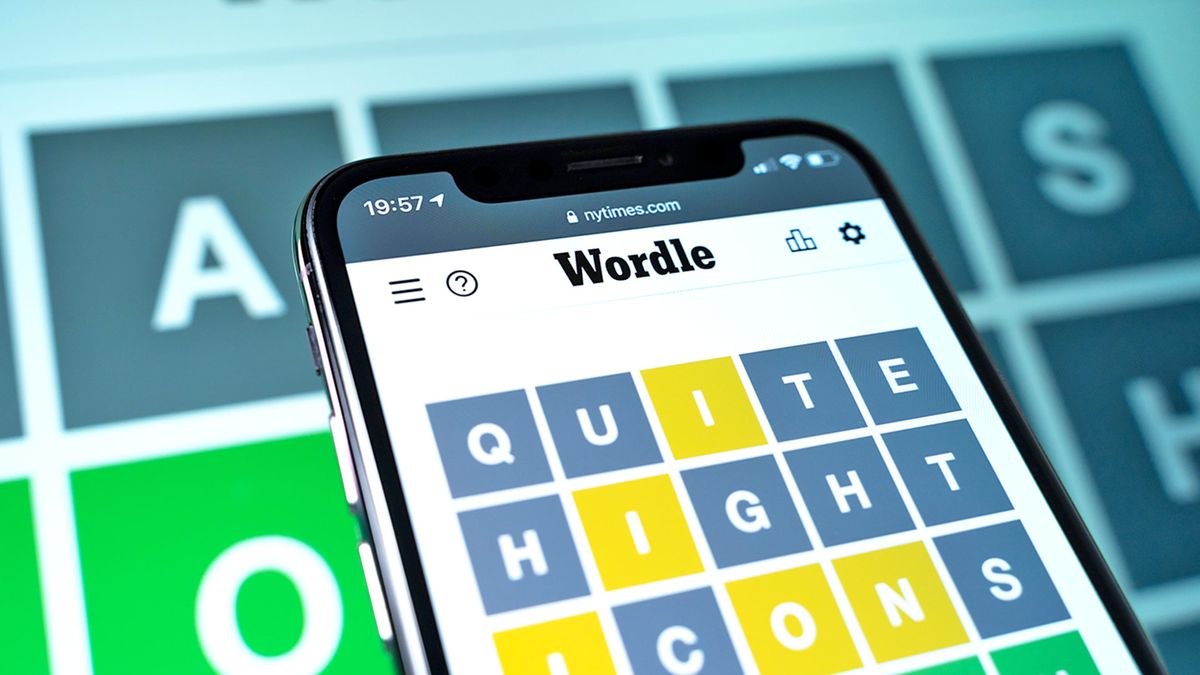
Wordle Hint
Wordle Hint If you’ve been on the internet in the last couple of years, chances are you’ve come across the colorful grid of green, yellow, and gray squares known as Wordle. This deceptively simple word puzzle has taken over morning routines, coffee breaks, and group chats. But while the game looks straightforward—just guess a five-letter word in six tries—getting the answer can sometimes feel like you’re deciphering a secret code. That’s where a Wordle hint can make all the difference.
A Wordle hint isn’t just about spoiling the answer; it’s about nudging you in the right direction, giving your brain just enough of a push without taking away the satisfaction of solving the puzzle. In this article, we’ll dive deep into what Wordle hints are, how to use them effectively, and why they’re the perfect balance between playing fair and avoiding frustration. So, grab your virtual notepad—this is your expert’s guide to mastering Wordle with just the right hint.
What Is a Wordle Hint and Why Do People Use It?
At its core, a Wordle hint is a clue that helps players get closer to the correct word without outright revealing it. Unlike simply looking up the day’s answer, a hint keeps the challenge alive. It could be as subtle as saying, “The word contains a double letter,” or as straightforward as hinting at the first letter.
Many players seek out hints because Wordle has a unique balance of difficulty. Some days, the puzzle feels like a breeze—you crack it in two tries, and you’re ready to share your winning grid on social media. Other days, the solution feels like an obscure word you’d only find in a dusty dictionary, and suddenly you’re one guess away from failure. That’s where a Wordle hint steps in to rescue your streak.
Using hints doesn’t mean you’re bad at the game. In fact, it shows you care enough to find a middle ground between giving up and outright cheating. Think of it as the training wheels of Wordle: you still pedal, but you’re not going to crash while trying to balance. For many, hints keep the fun alive without turning the game into a source of stress.
The Psychology Behind Wanting a Hint

There’s a good reason why Wordle players look for hints instead of answers. It all comes down to psychology. Solving a puzzle releases dopamine—the “feel-good” chemical in your brain. When you get help in the form of a hint, you still get to enjoy that dopamine hit when the word finally clicks. If you just look up the answer, the reward center in your brain doesn’t get activated the same way.
Hints also provide a sense of teamwork. Many people share Wordle hints in group chats or forums, where friends toss around clues without spoiling the solution. It creates a shared experience, a little game within the game. Instead of feeling isolated when stuck, you feel like you’re part of a community that’s collectively sharpening its word skills.
Lastly, there’s the element of habit. For daily players, maintaining a winning streak is important. Losing can feel disproportionately frustrating, especially when you’ve been on a roll. A hint preserves that streak while still requiring effort, making it the perfect compromise for competitive word nerds.
Different Types of Wordle Hints
Not all hints are created equal. Some are subtle, while others border on revealing the word. Here are the most common types of Wordle hints players look for:
1. Letter-Based Hints
This type gives you a clue about one or more letters in the word. For example, “The word starts with S” or “There’s a double O in the word.” It’s enough to narrow things down significantly without giving away the whole solution.
2. Category or Theme Hints
Sometimes hints are framed around the word’s meaning or category. For example, “It’s something you’d find in the kitchen” or “It’s related to weather.” These are trickier because they require you to brainstorm associations, but they’re also more fun and challenging.
3. Structural Hints
These clues reveal the shape of the word. For example: “It ends with -ER” or “The third letter is a vowel.” Such hints help you map out possibilities and test combinations quickly.
Each type of hint appeals to a different kind of player. Some prefer a quick nudge with a single letter, while others want to feel like detectives solving a riddle. The beauty of hints is that you can choose how much—or how little—help you want.
How to Use a Wordle Hint Without Ruining the Fun
If you’re going to use hints, the key is moderation. Using them too freely can take away the magic of the game. Here are some strategies to make sure you’re striking the right balance:
First, try at least three guesses on your own before turning to a hint. This ensures you’re giving your brain a workout and not relying on external help too soon. Remember, half the fun of Wordle comes from the process, not just the result.
Second, opt for subtle hints instead of direct spoilers. For example, knowing the word starts with “P” is more satisfying than being told the entire solution. It allows you to still explore possibilities while feeling like you’re on the right track.
Finally, treat hints as learning opportunities. If you discover that today’s word includes a rare letter combination, store that knowledge for future puzzles. Over time, you’ll notice your vocabulary and guessing strategies improve, reducing your reliance on hints.
Where to Find Reliable Wordle Hints
If you’re wondering where these magical clues come from, there are plenty of resources available. Many puzzle-focused websites publish daily Wordle hints without giving away the solution. They usually provide tiered clues—starting with very vague nudges and moving toward more direct hints if you need them.
Social media is another hotspot. Twitter, Reddit, and Discord communities often share hints and strategies while being careful not to spoil the answer. It’s like having a giant support group of fellow Wordle enthusiasts who understand the delicate balance between fun and frustration.
Some even prefer getting hints from friends and family. In fact, playing Wordle has become a social ritual for many. Sending a quick “Need a hint?” text to a buddy and receiving a cryptic clue can be just as satisfying as solving the puzzle itself.
Expert Tips for Guessing Before Using a Hint
Even before turning to hints, there are expert strategies you can use to maximize your chances of success. Start with strong opening words that cover common vowels and consonants—words like “CRANE,” “SLATE,” or “AUDIO.” These give you a good spread of letters to work with from the beginning.
Once you’ve locked in some green or yellow letters, focus on word patterns. For example, if you know the word ends in “ING,” there are only so many possibilities left. Eliminating unlikely options early helps prevent wasting guesses.
Don’t forget about letter frequency. Some letters, like E, A, and R, appear more often in English words. Others, like Q, Z, and X, are much rarer. Use this knowledge strategically to test high-frequency letters before diving into the unusual ones.
Why Wordle Hints Are Here to Stay
Wordle’s popularity shows no signs of slowing down, and hints have become part of the culture surrounding the game. They allow beginners to participate without feeling overwhelmed, while still giving seasoned players the satisfaction of solving.
Hints also keep the community buzzing. Without them, many players would give up on frustrating days, but with just a nudge, they remain engaged. It’s part of what has kept Wordle from being a passing fad and turned it into a lasting daily ritual.
Most importantly, Wordle hints highlight what makes games like this so enjoyable: the balance between challenge and reward. Too easy, and it’s boring. Too hard, and it’s discouraging. Hints make sure everyone finds their sweet spot.
Final Thoughts on Wordle Hints
At the end of the day, Wordle is about having fun while giving your brain a workout. A Wordle hint isn’t a sign of weakness—it’s a way to keep the challenge alive while still ensuring you end the day with a win. Whether you prefer letter-based nudges, thematic clues, or structural hints, there’s no wrong way to use them.
The key is to strike the right balance: challenge yourself first, seek a little help when needed, and always savor the satisfaction of that final “Aha!” moment when the word reveals itself. After all, Wordle isn’t just about letters—it’s about community, learning, and a daily reminder that words still have the power to bring us together.
So, the next time you’re staring at a grid of gray squares and feeling stuck, don’t feel bad about searching for a hint. With the right nudge, you’ll keep your streak alive, sharpen your skills, and—most importantly—continue to enjoy the puzzle that’s captured the world’s imagination.